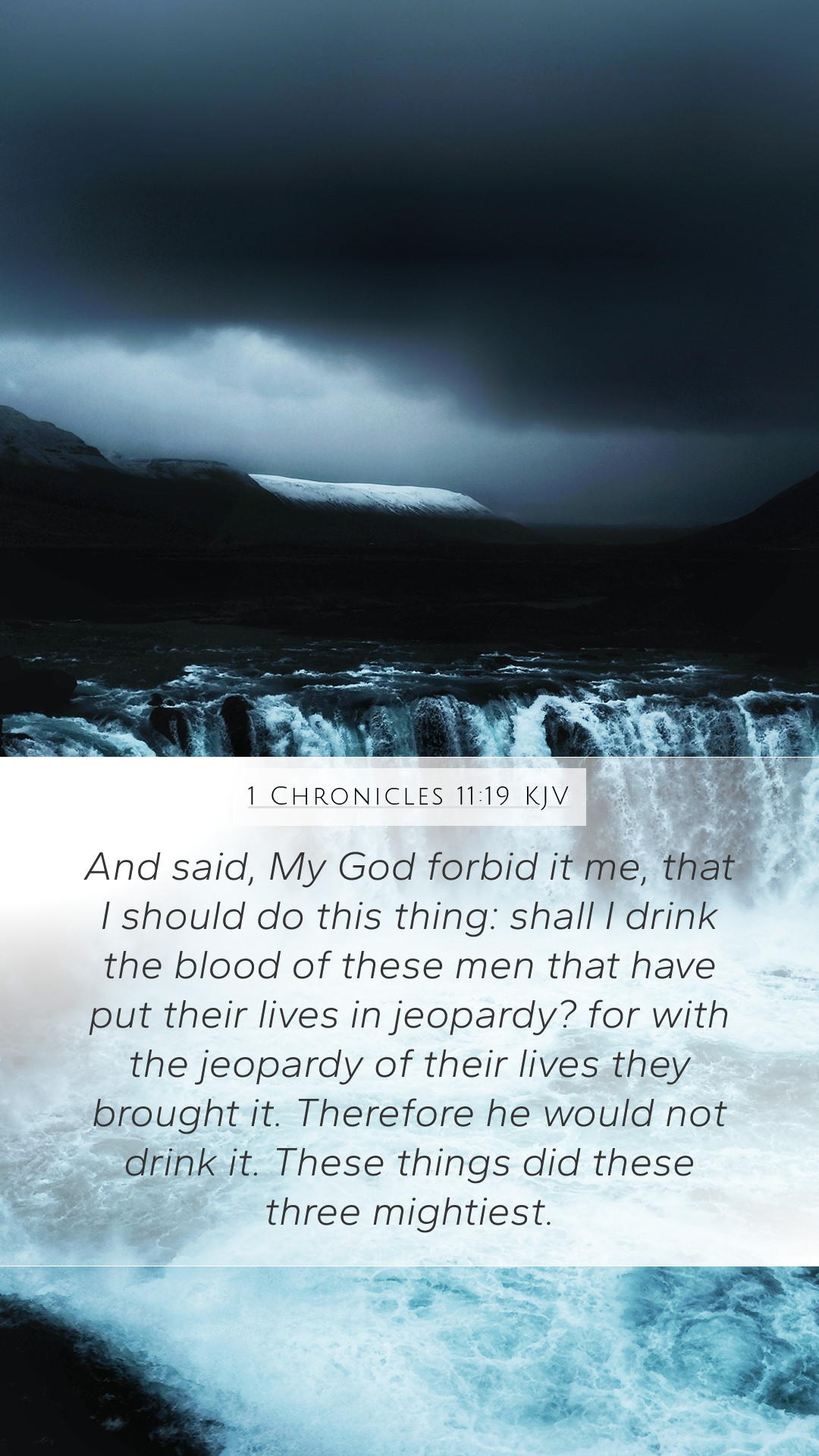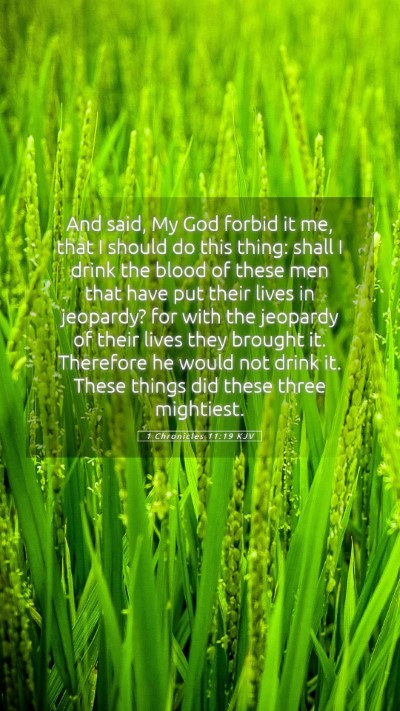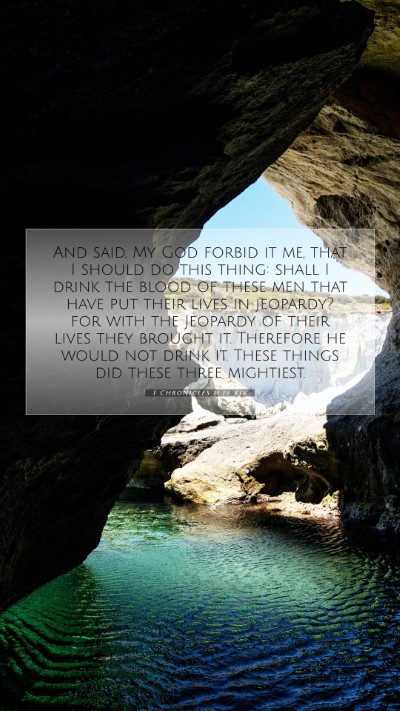Bible Verse Commentary on 1 Chronicles 11:19
Verse: 1 Chronicles 11:19 - "And said, My God forbid it me, that I should do this thing: shall I drink the blood of these men that have put their lives in jeopardy? for with the jeopardy of their lives they brought it."
This verse captures a profound sense of loyalty, honor, and the sanctity of life, bringing to light the moral integrity of David’s warriors. To fully understand the meaning of this Bible verse, let’s delve into a few critical interpretations and insights as drawn from public domain commentaries.
1. Summary of Context
The backdrop of this passage is an event during one of David's military campaigns. His warriors brave many dangers, and their loyalty is expressed in acts that could cost them dearly. The act of bringing David water from Bethlehem, despite the risks, highlights their devotion.
2. Key Themes in the Verse
- Honor and Respect: David’s refusal to drink the water signifies respect for the risks taken by his men. It emphasizes the value of their sacrifice.
- Self-Sacrifice: The warriors jeopardized their lives, illuminating the theme of self-sacrifice which is prevalent in the context of biblical narratives.
- Moral Integrity: David’s decision reflects a deep moral sensibility, acknowledging that consumption of the water would be akin to consuming the blood of those who risked their lives.
3. Commentary Insights
According to Matthew Henry, the verse emphasizes David's commitment to moral principles over personal satisfaction. He interprets David's refusal as a display of royal honor and as an act that draws a line between personal desires and the value of loyalty among comrades.
Albert Barnes elaborates further, indicating that the water brought by the men symbolizes the life they risked; therefore, David perceives it not merely as a thirst-quenching drink but as a sacred donation of life itself. He suggests that their bravery should be honored rather than taken lightly.
Adam Clarke adds another dimension by reflecting on the selflessness of those who risk their lives for others. His commentary encourages readers to view the warrior’s actions as a model of loyalty and bravery. David's response serves as a template for leaders on how to value and respect the contributions of those they lead.
4. Applications and Implications
This verse has significant applications in understanding the dynamics of leadership and sacrifice:
- Leadership Principles: Effective leaders should value the sacrifices of their teams, recognizing the hard work and risks they take.
- Relationships and Loyalty: This verse encourages fostering strong bonds built on loyalty and respect in both personal and professional relationships.
- Value of Life: The recognition of life’s sanctity encourages individuals to regard their decisions with a deeper moral lens, especially in challenging situations.
5. Cross References
- 2 Samuel 23:16 - The same account with additional details about the act of bravery.
- 1 Samuel 26:9 - David’s respect for Saul’s life, showing his moral integrity.
- Proverbs 12:10 - The righteous care for the needs of their animals, correlating the value of life.
- Philippians 2:30 - Discussing risking life for the gospel's work, mirroring the loyalty exhibited here.
- John 15:13 - "Greater love has no one than this, that someone lay down his life for his friends," aligning with the theme of sacrifice and loyalty.
6. Conclusion
The examination of 1 Chronicles 11:19 provides a rich perspective on loyalty, sacrifice, and the moral obligations of leadership. Through understanding this verse, we gain invaluable insights into the significance of honoring the sacrifices made by others, and it encapsulates a vital lesson applicable in both historical and modern contexts. The moral teachings derived from this passage are essential for personal development, community bonding, and effective leadership.


